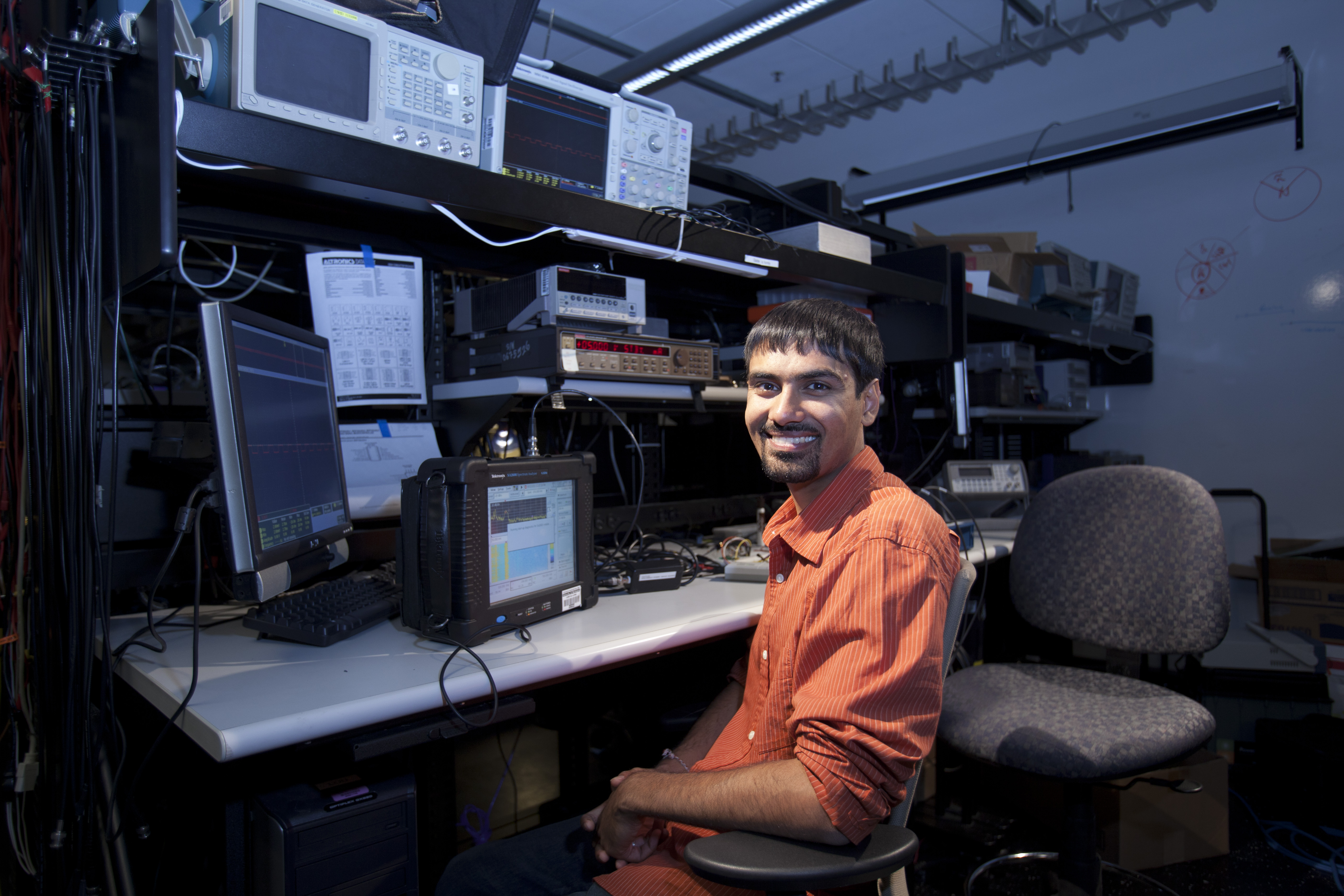Shwetak Patel: Are You Alone, and Are You Sitting Down?
by Priya Chhaya
Last fall, Shwetak Patel was in his home office when his phone rang. The voice on the other end introduced themselves, before asking him: “Are you alone, and are you sitting down?”
The call was from the John D. and Catherine T. MacArthur Foundation and they were giving him a $500,000 genius grant as part of the MacArthur Fellows Program.
It’s a prestigious award, one with no strings attached and involves years of undercover work by the Foundation before the finalists are selected, and at first Patel “thought it was a prank by my students so I checked into my website’s browser history and found that someone from the MacArthur Foundation had been looking me up pretty regularly for the last two years.”
Within a few weeks he found out he was in the company of other 2011 fellows, including: New York radio host Jad Abumrad, public historian Tiya Miles (who is chronicling the relationships between Cherokee and African communities in colonial America), and jazz percussionist/composer Dafnis Prieto. Patel grew up in Birmingham, Alabama, and found himself drawn to computer science because he could easily create new ideas and projects that could be implied to many disciplines. His main interests focused on human computer interaction, which looked at ways to make the link between humans and computers easier and more intuitive.
For example, the wireless router—probably the most common piece of household technology today, is not the easiest thing to figure out. While many of us have become accustomed to troubleshooting it (unplug it, wait ten seconds, then plug it back in) we often end up having to call our internet provider anyway. For Patel, it is “the number one returned object because it is so hard to use. [My] goal is to figure things out up front, so that it is immediately accessible.”
As described on their website, the MacArthur Foundation chose Patel because of his work on “inventing low-cost, easy-to-deploy sensor systems that leverage existing infrastructures to enable users to track household energy consumption and to make the buildings we live in more responsive to our needs.”
In essence, he’s developing an easy-to-use system that allows homeowners to track energy consumption in their own house without the need of a middle man, an idea that came to him when he “first work[ed] on new ways for sensing human activity in the home for applications related to elder care, but realized that our indirect sensing techniques could also be used for energy monitoring. I thought that was a natural application at that point.”
In a Wired cover story, Harnessing the Power of the Feedback Loop (July 2011), Patel further describes how technology could help with remote home care for the elderly—for example, how can you tell a bathroom light has been switched off, or that something else out of the normal routine was running, indicating a problem. His work led to the development of algorithms that helped discern frequencies of a light switch from a blender. These algorithms, in turn, continued in his work for the development of an easy-to-use energy sensor technology for homeowners.
Pretty cool huh? Part of why this is so great is that watching how much energy you consume is currently an incredibly tedious practice. It’s mostly a guessing game—tracking how many lights you leave on, how long you run your dishwasher, washer and dryer, the heat or air conditioning. Being able to pinpoint immediately which appliance is effecting your energy bill (and pinpointing where your energy leaks are) is a great tool for any homeowner to have.
So what does Patel plan to do with the money? He has lots of ideas, two of which include investing in a home lab and starting projects where traditional funding sources aren’t available.
As our interview wound down, Patel says that his wife predicted this would happen. About a week before the infamous “call out of the blue,” they were on an airplane talking about how some of his research had shown up in the New York Times. Off hand, and almost jokingly, his wife said that he should probably get the MacArthur award. A week later the phone rang. The rest, they say, is history.
Priya Chhaya is a public historian that works with the National Trust for Historic Preservation. She sees history wherever she goes and believes that it is an important part of the American (and Indian American) identity.




Patel is an Indian alumnus from Georgia Tech. Shwetak Patel really deserves this award with what he idea can do to help preserve energy.